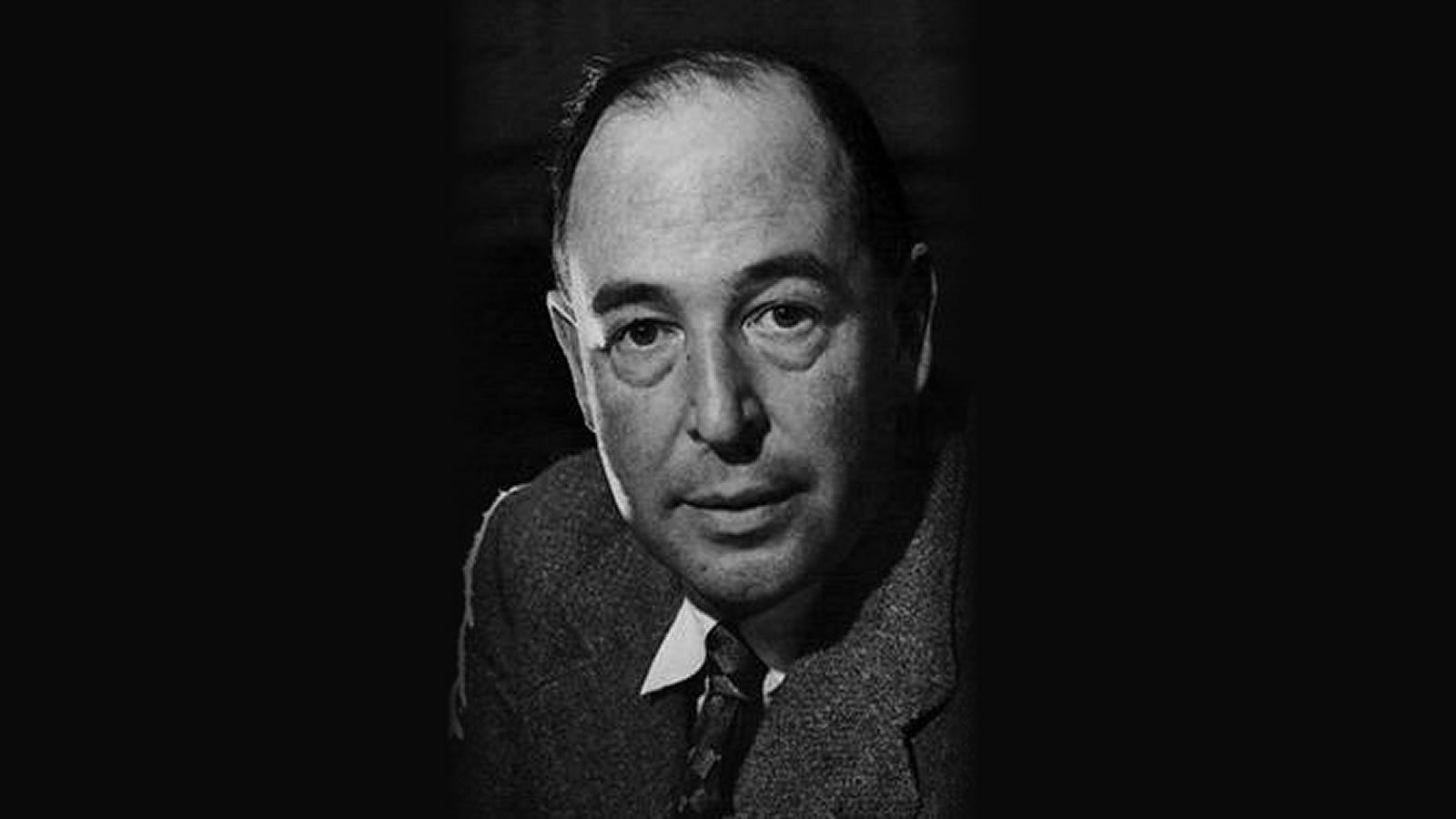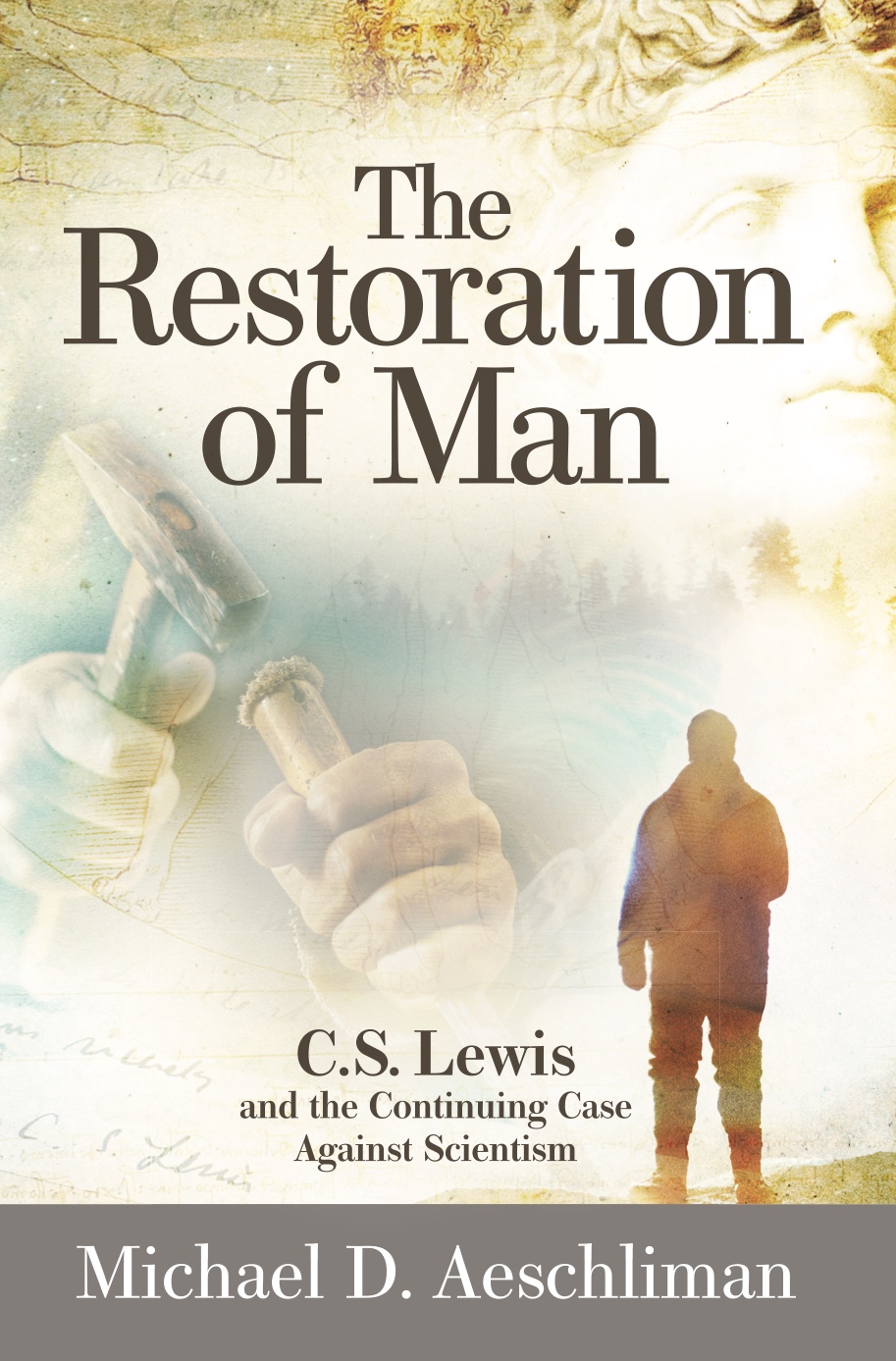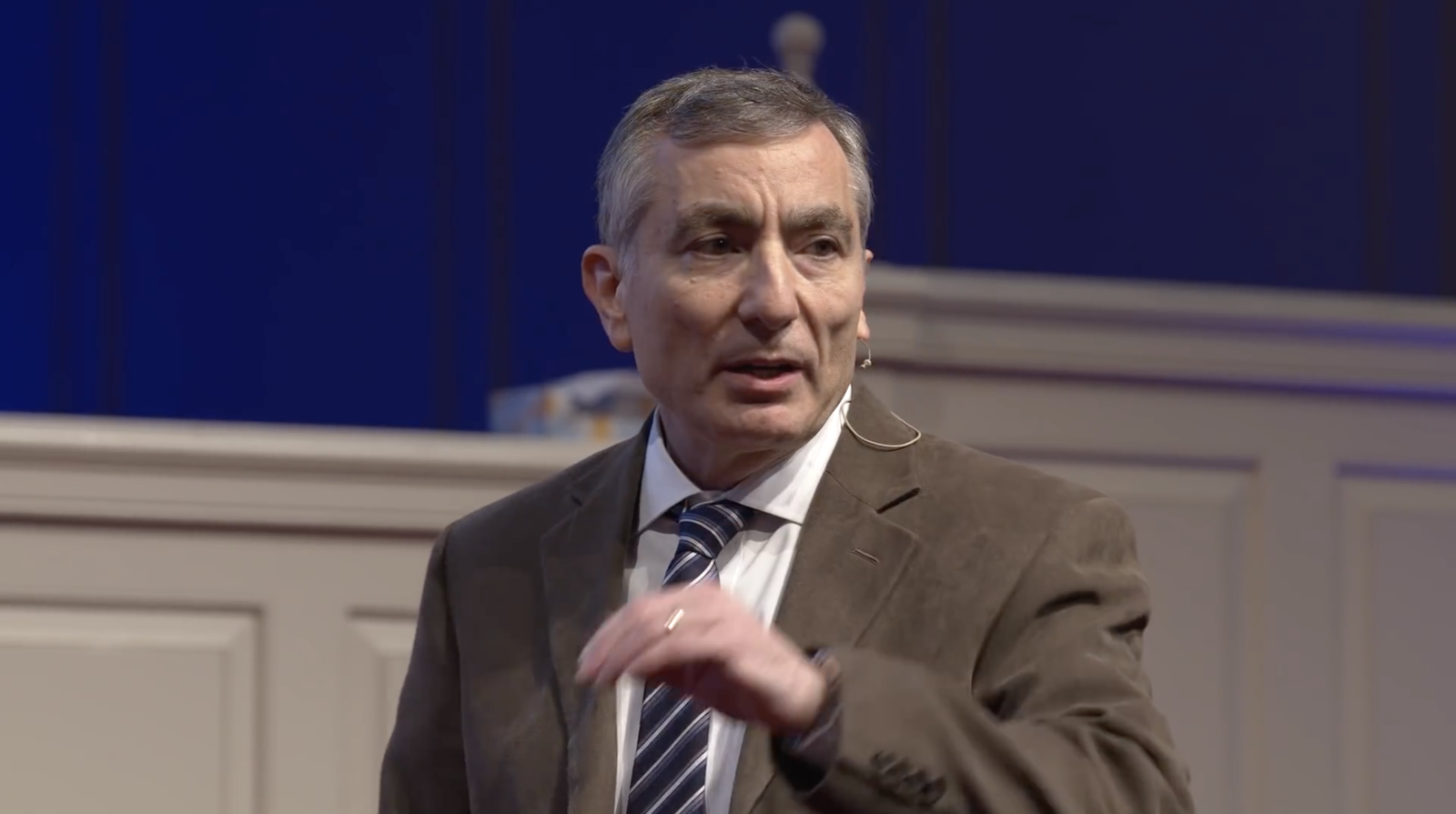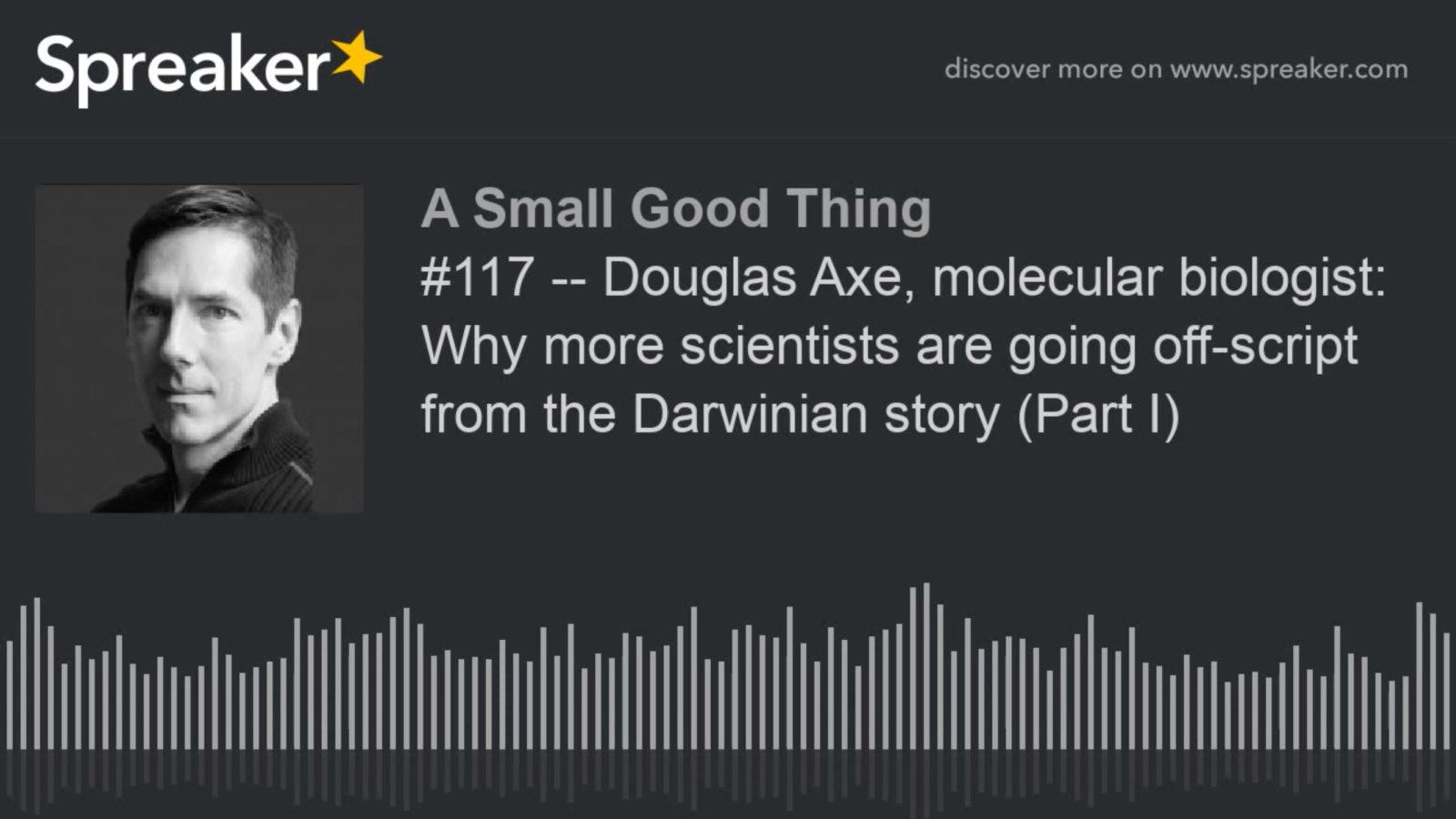


Isolating the Biggest Problems in Israel
We all are beginning to understand what is right about Israel. It is at the pinnacle of human accomplishment in technology, innovation, culture and wealth. Amid a global slump, it is still growing at an annual rate near 5%. In startups, IPOs, and venture capital, it leads the world by any per-capita standard and in some ways by absolute metrics. Read More ›

Protein Structure Cannot Evolve by Mutations, Shows Study Undercutting Darwin
Douglas Axe, Paul Nelson and Stephen Meyer discuss intelligent design. Full interview at https://youtu.be/DwlFgaZkndA.
Why Truth Still Matters
Stephen Meyer, Director of the Center for Science and Culture, is scheduled to speak at the upcoming National Conference on Christian Apologetics presented by Southern Evangelical Seminary in Charlotte, NC. The theme this year — Why Truth Still Matters — will feature a variety of sessions from scientists, philosophers, and theologians. Dr. Meyer’s sessions are listed below, and a full Read More ›

C.S. Lewis and the Religion of Science
In the previous century, the language wars were fought over adverbs; at issue was discipline of thought and speech. How many thousands of readers of The Elements of Style felt that mixture of shame and delight when they read what Strunk and White had to say about “hopefully”? “This once-useful adverb meaning ‘with hope’ has been distorted and is now widely used to mean ‘I hope.’ Such use is not merely wrong, it is silly.”
Oh, for the good old days.
To be sure, Orwell was there to remind us about the dangers of newspeak. But as the century ground to its weary end, the Communists were in worldwide retreat, and it seemed as though words were returning to their proper meanings.
How shocking these last few years have been. Suddenly, pronouns and possessive adjectives are on everyone’s minds. “To each their own” is ubiquitous. Today one takes a stand by using the constructions we found so cumbersome in the 1980s, “he or she” and “his or her.” Whence this strife over words? What are its deep roots? How is sanity to be defended amid these battles?
Michael D. Aeschliman’s The Restoration of Man: C. S. Lewis and the Continuing Case against Scientism, an updated edition of a work first published in 1983, has the answers.
There is a double surprise in store for Aeschliman’s readers. It is alarming to learn how the rise and growth of a scientific culture has been linked with the most blatant subjectivism. It is a joy to be introduced to the “great central tradition” of witnesses to the true meaning of words and defenders of human reason, a tradition culminating in a man here fittingly characterized as its “trustee,” the redoubtable “Jack” Lewis.
As to the first, in The Restoration of Man, Aeschliman ably chronicles how the culture associated with the new science of the 17th century began poorly and became worse. It was four long centuries ago, after all, that Francis Bacon declared, “There is nothing sound in the notions of logic and physics: neither substance, nor quality, nor action and passion, nor being itself are good notions; much less heavy, light, dense, rare, wet, dry, generation, corruption, attraction, repulsion, element, matter, form, and so on; all fanciful and ill defined.” And just three years later, Galileo followed up with “I think that tastes, odors, colors, and so on are no more than mere names so far as the object in which we place them is concerned, and that they reside only in the consciousness.” The new science began with an assault on the human race’s immemorial habit of expressing its experience of the world in ordinary language. On Bacon’s and Galileo’s principle, even a statement as simple as “The brown horse ate the red apple” would need to be called into question.
In the intervening centuries, the rejection of what we know to be the case through seeing and touching has become more and more troubling and perplexing. Darwin, for one, mused in his notebooks that thought might best be understood to be a “secretion of the brain,” without stopping to ask himself who then would be doing the understanding. Badly do we need witnesses such as Lewis and the philosopher Thomas Nagel to remind us that “scientific materialism is,” in Aeschliman’s words, “internally inconsistent and false.”
Read More ›
The Restoration of Man
C. S. Lewis is best known for his Narnia tales and Christian apologetics, works that have sold more than 100 million copies. But Lewis was also a trained philosopher and a professor at Cambridge and Oxford. An intellectual giant, he fiercely and extensively critiqued the fashionable dogma known as scientism — the idea that science is the only path to Read More ›

‘New Left Urbanists’ Want to Remake Your City

The Mystery of the Origin of Life
Dr. Tour is one of the world’s top synthetic organic chemists. He has authored 680 scientific publications and holds more than 120 patents (here is a partial list). In 2014, Thomson Reuters named him one of “The World’s Most Influential Scientific Minds,” and in 2018 Clarivate Analytics recognized him as one of the world’s most highly cited researchers. Tour is Read More ›

Why More scientists are going Off-script from the Darwinia
David Gelernter at Yale recently wrote an essay in Claremont Review of Books entitled “ Giving Up Darwin: A fond farewell to a brilliant and beautiful theory.” Gelernter is one more of a small but growing number of scientists and intellectuals who are now studying the evidence for themselves and finding that the case for evolutionary biology as presented by Read More ›
